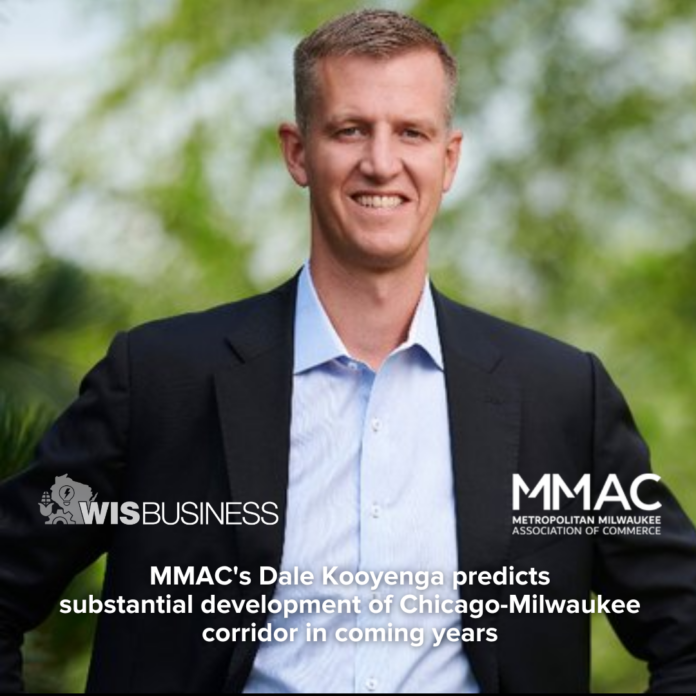Incoming MMAC President Dale Kooyenga predicts the corridor between Chicago and Milwaukee will see substantial development in the coming years, anchored by Microsoft’s operations in the region.
“There’ll be a point here I think in the next five, six years where you see no agricultural land; it’s all developed,” the former GOP lawmaker said yesterday during a Newsmaker luncheon hosted by WisPolitics and the Milwaukee Press Club. “And that Microsoft investment is going to gain a lot of momentum.”
After announcing in the spring that it would invest $1 billion in a Racine County data center, the Washington-based tech giant more recently said it would invest “billions of dollars” into the site originally destined for Foxconn’s Wisconsin operations.
“What I see us at MMAC doing with our M7 is recognizing the ecosystem that’s going to create, and then recruiting companies that want to be a part of that ecosystem,” Kooyenga said, referring to the Milwaukee 7 regional economic development initiative that includes Kenosha, Milwaukee, Ozaukee, Racine, Walworth, Washington and Waukesha counties.
Kooyenga is set to take over leadership of the Metropolitan Milwaukee Association of Commerce in January after outgoing President Tim Sheehy steps down after three decades in the role.
Also during yesterday’s event, Kooyenga touted the region’s advanced manufacturing industry, pointing to companies like Rockwell Automation that are on the cutting edge of robotics applications. Even as the number of manufacturing jobs in the region has declined, manufacturing output has “significantly increased” due to higher productivity.
“Where the future is headed is where Milwaukee is at … We actually represent more of the manufacturing sector of America than we have for generations,” he said.
He also weighed in on the controversy surrounding diversity, equity and inclusion as lawmakers and Universities of Wisconsin leadership spar over a deal that would cut DEI positions in exchange for other UW priorities such as employee pay raises and engineering building funds.
In response to an audience question, Kooyenga said he’s skeptical “that we’re going to be able to change everyone’s messaging” on that particular issue.
“All we can do is message for ourselves, and for ourselves, for MMAC, our members, we made very clear that we need to have a diverse community where everyone is thriving, where everyone has opportunities,” he said. “Because economically, it’s all hands on deck.”
He argued DEI efforts are “the right thing to do” given the “huge” disparities between various Milwaukee communities, pointing to education and housing as examples.
See the MMAC leadership transition announcement: https://www.mmac.org/news/mmac-announces-leadership-transition
Watch the video of the event: https://www.youtube.com/watch?v=ZWzst5hILBs
–By Alex Moe






